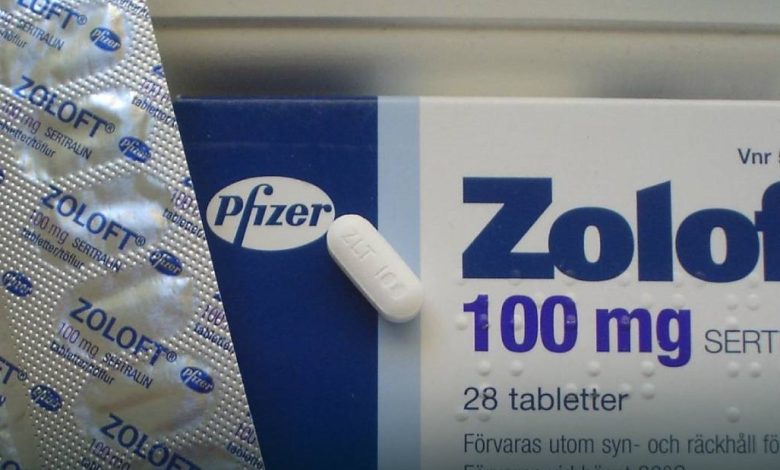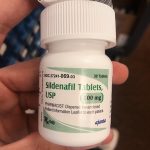Is 100mg of Zoloft a High Dose? Exploring the Safety and Efficacy?

Zoloft, the brand name for the medication sertraline, is a commonly prescribed antidepressant used to treat various mental health conditions, including depression, anxiety disorders, and obsessive-compulsive disorder. It belongs to a class of drugs known as selective serotonin reuptake inhibitors (SSRIs) and is highly effective in alleviating the symptoms of these conditions. However, as with any medication, it is important to consider the appropriate dosage.
Many individuals wonder if 100mg of Zoloft is a high dose and whether it’s safe and effective. In this article, we will explore the various factors that determine the right Zoloft dosage, the potential side effects of higher doses, and when a higher dose may be necessary.
What is Zoloft (Sertraline)?
Before delving into the question of whether 100mg of Zoloft is a high dose, it’s essential to understand the medication itself and its mechanism of action. Sertraline is classified as an SSRI, a type of antidepressant that works by increasing the levels of serotonin in the brain. Serotonin is a neurotransmitter that plays a crucial role in regulating mood, emotions, and overall well-being.
Zoloft is available in various strengths, with 25mg, 50mg, and 100mg being common options. The recommended starting dose for adults is typically 50mg once a day. This initial dose can be adjusted based on an individual’s response to the medication and the specific mental health condition being treated. A doctor will carefully consider a patient’s symptoms and medical history when determining the appropriate dosage.
Factors Influencing Zoloft Dosage
Several factors influence the choice of the appropriate Zoloft dosage for an individual. These factors include:
1. The Condition Being Treated: The severity of the mental health condition plays a significant role in determining the dose. Conditions like major depressive disorder, panic disorder, and obsessive-compulsive disorder may require higher doses of Zoloft to achieve therapeutic effects.
2. Individual Response: Every person responds to medications differently. Some individuals may require higher or lower doses to achieve the desired outcome. It’s crucial for the prescribing healthcare provider to closely monitor patients and adjust the dosage accordingly.
3. Age and Weight: The patient’s age and body weight can also impact the choice of dosage. Typically, higher doses are required for adults compared to children and adolescents.
4. Tolerance and Side Effects: Tolerance to Zoloft may develop over time, necessitating a dose adjustment. Additionally, if an individual experiences intolerable side effects, a lower dose or a switch to a different medication may be necessary.
5. Coexisting Medical Conditions: Certain medical conditions or medications may interact with Zoloft, affecting the recommended dosage. A comprehensive medical evaluation is crucial to determine the safety and effectiveness of Zoloft for each patient.
Is 100mg of Zoloft a High Dose?
The question of whether 100mg of Zoloft is a high dose depends on several factors, as discussed above. In some cases, 100mg may be considered a high dose, while in others, it may be the appropriate therapeutic dose. It is essential to remember that Zoloft doses can range from as low as 25mg to as high as 200mg per day, depending on the individual’s needs.
For many individuals, especially those with severe forms of depression or anxiety disorders, 100mg of Zoloft may be a necessary and effective dose. Higher doses may be recommended by healthcare providers when lower doses have proven insufficient in managing the symptoms or when an individual has developed tolerance to lower doses. In such cases, increasing the dose is a reasonable course of action to achieve better therapeutic outcomes.
Safety and Efficacy of 100mg Zoloft
Safety and efficacy are critical concerns when considering a Zoloft dosage of 100mg. Here are some key points to consider:
1. Safety: When prescribed and monitored by a healthcare professional, 100mg of Zoloft is generally considered safe for most individuals. However, it’s crucial to discuss any potential risks and side effects with a doctor. Some individuals may be more sensitive to the medication and may experience more pronounced side effects at this dosage.
2. Efficacy: The efficacy of Zoloft at 100mg depends on the individual’s response to the medication and the condition being treated. For some individuals, this dosage may be highly effective in alleviating their symptoms, while others may require a higher or lower dose for optimal results.
3. Side Effects: Like all medications, Zoloft can have side effects. At a dosage of 100mg, some individuals may experience side effects such as nausea, headache, sleep disturbances, or sexual dysfunction. Many people have reported Zoloft-induced sexual side effects like reduced libido, difficulty achieving or maintaining an erection in men, and delayed orgasm or anorgasmia (inability to reach orgasm) in both genders. These side effects are thought to be related to the medication’s impact on serotonin levels in the brain, which can interfere with normal sexual function. These side effects can be temporary and tend to diminish as the body adjusts to the medication. If side effects are severe or persistent, it’s important to discuss them with a healthcare provider.
4. Risk of Serotonin Syndrome: At higher doses, there is a small risk of developing serotonin syndrome, a rare but potentially life-threatening condition caused by excessive serotonin levels. This risk is relatively low, especially when Zoloft is used as prescribed and not in combination with other medications or foods that increase serotonin levels. Healthcare providers closely monitor for signs of serotonin syndrome.
5. Gradual Dose Adjustment: Healthcare providers usually start with a lower dose and gradually increase it, allowing the patient’s body to adapt and minimizing the risk of side effects. It is important to follow the prescribed dosing schedule.
When Is a Higher Dose Necessary?
A higher dose of Zoloft, such as 100mg or more, may be necessary in several situations:
1. Severe Mental Health Conditions: For individuals with severe depression, panic disorder, or obsessive-compulsive disorder, higher doses are often required to achieve symptom relief. These conditions may be resistant to lower doses.
2. Tolerance Development: Some individuals may develop tolerance to Zoloft over time, meaning that the initial dose that was effective no longer produces the same results. In such cases, increasing the dose can be a valid approach.
3. Incomplete Response: If an individual’s symptoms do not improve significantly or remain only partially controlled on a lower dose, a healthcare provider may recommend a dose adjustment to achieve better results.
4. Coexisting Medical Conditions: Zoloft may be used to manage mental health conditions in individuals with other medical conditions that affect the metabolism of the drug. In such cases, higher doses may be needed to maintain the therapeutic levels of the medication.
Conclusion
The question of whether 100mg of Zoloft is a high dose is a complex one, and the answer varies depending on individual factors and the condition being treated. Zoloft is a widely prescribed antidepressant that is generally safe and effective when used as directed by a healthcare provider. Higher doses, such as 100mg, are often necessary for individuals with severe mental health conditions, those who have developed tolerance, or those with coexisting medical conditions that affect drug metabolism.
It is essential for individuals considering or currently taking Zoloft to maintain open and honest communication with their healthcare providers. A medical professional will consider all relevant factors, closely monitor the individual’s response to the medication, and make dose adjustments as needed to ensure the best possible outcome in terms of safety and symptom relief. If you have concerns about your Zoloft dosage, it is crucial to consult with a healthcare provider to determine the most appropriate course of treatment for your specific needs. Remember that medication should always be taken under the guidance of a qualified healthcare professional, and self-adjusting doses can be dangerous.





